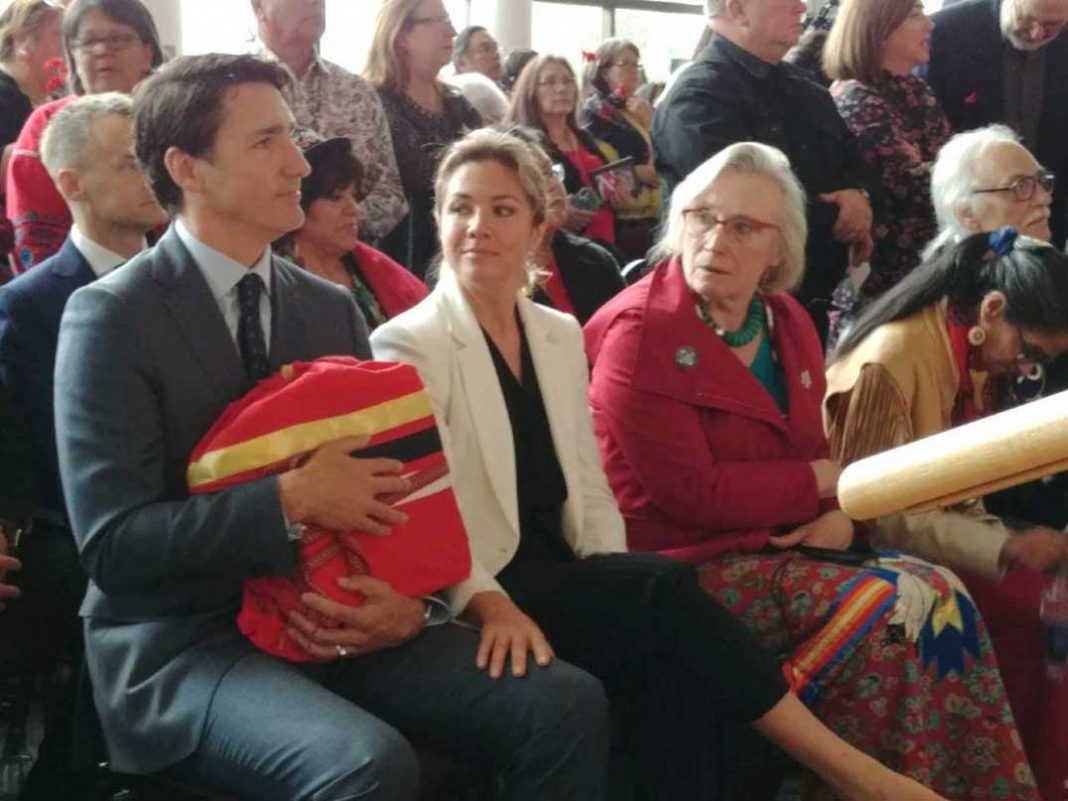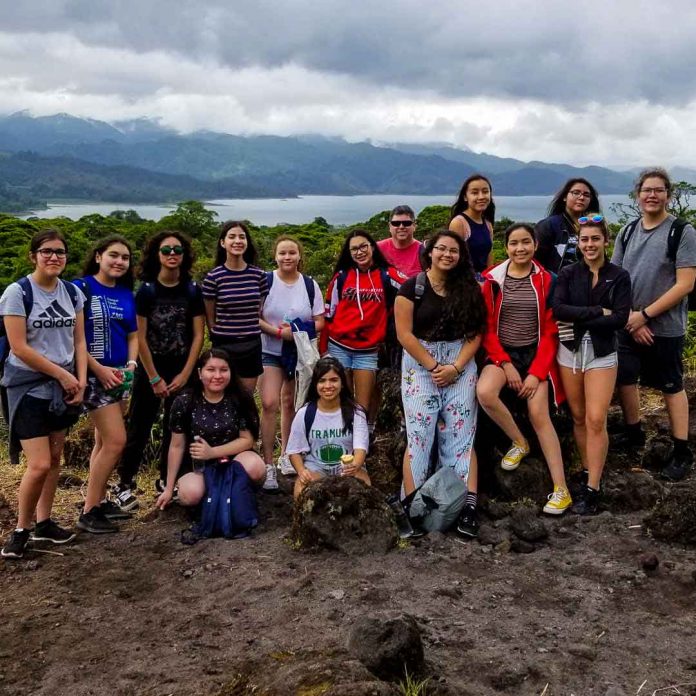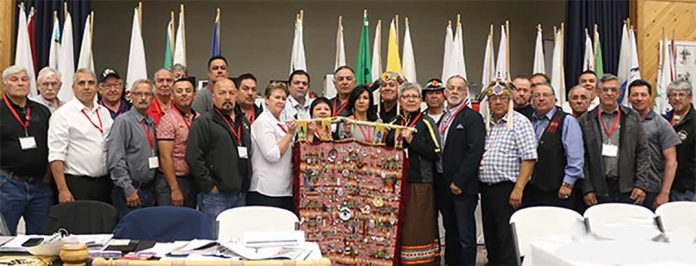GATINEAU, QUEBEC – Following three years of cross-country community visits, thousands of testimonies of those loved ones who were left behind and 1,200 pages later, the final report from the national inquiry into missing and murdered Indigenous women and girls (MMIWG) was delivered to the federal government Monday morning, wrapped in a star blanket and laden with traditional medicines.
The word “genocide” rang out loud and clear throughout the day’s proceedings, with chief commissioner Marion Buller using the term over and over again.
“This report is about these beautiful Indigenous people and the systemic factors that lead to their losses of dignity, humanity and, in too many cases, losses of life,” Ms. Buller said, addressing the audience. “This report is about deliberate race, identity and gender-based genocide.”
The report listed 231 recommendations that Ms. Buller called “legal imperatives” and implored all Canadians to see these recommendations a reality. All Canadians, she said, have a role to play. It also included a separate 46-page report that outlined how the commission concluded that the disappearance and murder of thousands of women and girls is indeed genocide.
The first of those recommendations is to develop and implement a national action plan to address violence against Indigenous women and girls who, the report notes, are 12 times more likely to be murdered or go missing than any other Canadian demographic, and which Prime Minister Trudeau pledged he would do during his closing remarks.
Meggie Cywink, of Whitefish River First Nation, is the sister of the late Sonya Nadine Mae Cywink, who was found murdered near London in 1994. Ms. Cywink and her family had lobbied for a national inquiry for years and was often vocal against how the inquiry was being handled.
Ms. Cywink, who was in Gatineau for the report’s release, said she was still upset with how the inquiry played out.
“For the past two-and-a-half years the majority of information families have received about the inquiry’s undertakings is through the media,” she told The Expositor. “Very little to no information has come directly from the inquiry to families. None that I know of except for our group, but we had to threaten court action before we became a recognized Party with Standing.”
“This commission will go down in history as the worst and least effective colonial process ever to have been created to address the systemic causes of violence perpetuated against Indigenous women and girls, trans and two spirit people,” Ms. Cywink continued. “I am completely disappointed with this inquiry now creating divisiveness between Indigenous people and Canadians. ‘Canadian genocide’ will continue to divide this country; it’s counterproductive and holds no sense of unification when that’s exactly what we need!”
“This inquiry has only reproduced knowledge that families and grassroots have known for decades, that the murders and disappearances has been one form of genocide. They have failed to produce anything that is of benefit to us, and that is because they failed to involve grassroots, women incarcerated, sex industry workers, homeless women and youth and allies in their process.”
“Grassroots have been doing this work long before the inquiry came to be and we’ll be continuing to resist colonial violence and protect the next generation long after the inquiry mandate wraps up,” Ms. Cywink added. “The voices of family’s matter, our experience matters, we matter.”





